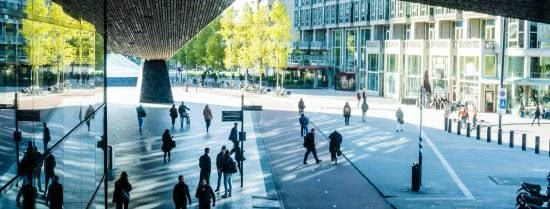What are we researching?
How can the municipal organisation be set up and developed in such a way that it can make a good contribution to the complex issues in Rotterdam? In GOVLAB010, science and practice join forces at the intersection of governance, policy and organisational development to conduct design-oriented research and learn together.
Why and how are we are we doing this research?
The city of Rotterdam faces many complex challenges in the city, such as energy transition, housing and poverty, which place high demands on the organisation's functioning. The organisation must be both decisive and responsive and both efficient and value-oriented. To meet these challenges, we combine scientific expertise and practical knowledge in GOVLAB010. We collect knowledge questions from the municipality and connect them with scientists inside and outside Erasmus University Rotterdam. In our research, we work in a co-creative and design-based manner. Together we search for a better understanding of the issue, explore new solution directions and assist in their implementation.
How does our research make an impact?
We always link up with concrete projects within the municipality of Rotterdam in the area of organisational development, for example, concerning integrative work, human scale, the Environment Act and district-oriented work. Within this context, we develop applicable knowledge in co-creation. We do this together with practitioners so that this knowledge immediately seeps into the (working methods of the) organisation.
In addition, we conduct in-depth and multi-year research with the deployment of PhD students and periodically carry out a Governance Review: an interim evaluation of the 'state of the organisation'.
Our working method brings people together in a learning process, thus contributing to mutual understanding and stronger relationships. In this way, the knowledge we develop has added value and the way we do it.
In addition to scientists, students also play a role in this. They take a fresh look at urban issues and develop their professional skills simultaneously. We also use various ways to share knowledge, such as webinars and (mini-)lectures.
